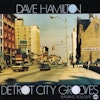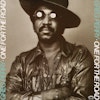As the nation celebrates what would’ve been Dr. Martin Luther King Jr.’s eighty-fifth birthday today, the story of how two legendary, influential musicians used their talents to join forces with Coretta Scott King in securing a national holiday for her husband has been given little light. The arduous efforts of Stevie Wonder and Gil Scott-Heron can’t be overlooked. They used their respective platforms to create a massive movement to gain overwhelming support to pass a federal law making Dr. King’s birthday a federal holiday. After the initial introduction of the measure by Congressman John Conyers Jr. and former Senator Edward Brooke in 1971, the bill languished in Congress for eight years until Jimmy Carter became President in 1979.
President Carter threw his weight behind the movement and bill, but it was defeated in the House of Representatives the same year. Undeterred, Mrs. King continued to galvanize support around the cause. She testified in front of Congress several times in addition to traveling around the country and collecting endorsements from state and local political figures. After acquiring three million signatures of citizens wanting to honor Dr. King’s legacy and being denied, it was clear that the King Memorial Center and Mrs. King needed another vehicle to accomplish their goal.
Stevie Wonder decided to get involved with the movement. Upon releasing his Dr. King tribute song, “Happy Birthday,” Wonder made it his mission to obtain a federal holiday for Dr. King through his Hotter Than July tour in late 1980. And here is where the story begins.
Legendary producer and engineer Malcolm Cecil worked alongside Wonder and Scott-Heron as they embarked on the tour to help spur on the passage of the bill in Congress. On the occasion of the holiday, I spoke with Malcolm Cecil about Wonder and Scott-Heron’s relationship, the tour, and the power of music and artists when they unite for a common purpose.
What was the type of relationship that existed between Stevie Wonder and Gil Scott-Heron during the Hotter Than July tour?
Malcolm Cecil: Basically, they were friends. They enjoyed each other’s company intellectually and personally. They each had a great sense of humor. They laughed a lot. Gil and Stevie were of the same mind as it pertained to social injustice and what needed to be done to solve it. The relationship started in earnest when we started the Hotter Than July tour in 1980. This happened because Bob Marley was supposed to be the opening act, but he contracted cancer. He was unable to attend what we thought were going to be the first few shows on the tour because of how the tour was set up.
How long were you on tour with Gil and Stevie for and can you describe the atmosphere during the time you were together with them?
The tour lasted through the last three months of 1980 into 1981. But we weren’t on tour constantly. We would travel from one area to another and do ten days of touring—then we would be off for a couple of months and come back do another area of the country. They would fly us into an airport and a coach would come and meet us with all the instruments on it. We traveled in the coach or in some cases, we traveled in rented cars. But the idea when we first started was that Gil was going to do the first couple of days to substitute for Bob Marley. We thought it was only going to be for a few days. The first gig was in Austin, Texas. We were flown into Austin the day before. I was busy taking inventory of all the technical equipment because a company called Britannia Row was doing the sound. Stevie had flown them in from England. British specifications for sound equipment are entirely different than America specifications for sound equipment. I went to see their equipment to see what was American and what wasn’t. I was busy opening crates and checking things out.
Gil and Stevie were chatting on the stage about what we call “blocking,” which is where people stand and where the spotlights will be shining and so on and so forth. They were talking specifically about the closing for the show. Stevie had his show together and Gil had his show together. But Stevie and Gil said they were going to do something at the end of the show. While I was messing around onstage, I overheard their conversation. All of a sudden, I hear, “Malcolm!” They both called me over. They tell me that they’re going to do something for Martin Luther King’s birthday. We were all sitting there and I was a fly on the wall. Gil and Stevie chatted about what they were going to do. Stevie decided that he was going to sing his song that he wrote for Dr. King called “Happy Birthday.” Little did I know that he had previously discussed doing this on this tour during his interview with Barbara Walters earlier in the summer of 1980.

Please continue.
At this show is where I first heard him sing this song. After he performed the song, they exalted the audience to write their congressmen about making Dr. King’s birthday a national holiday. Stevie wanted to do this because legislation for it had failed ten years in a row. Gil scribbled down a few words as well because he’s a wordsmith, and I went to a local copy shop to make copies of what they wanted to tell their audience. There were going to be twenty thousand people at the concert, but Gil and I didn’t have that kind of money—so I had one thousand black-and-white copies printed up. It was basically the words Gil wrote to say to encourage people to write their congressmen. I distributed those to the various ushers before the show started. The show went down very well. I wasn’t able to distribute copies at every venue because it just wasn’t possible in a few places. There was only a certain amount I could afford to pay out of my meager earnings at the time. Nobody was providing a budget for this, so it didn’t go past the first couple of nights in terms of the leaflets. Apparently, a lot of them were lying around and we got complaints about littering at one venue. That was also part of the reason we stopped handing them out. This was the beginning of the movement. And then, Bob Marley never recovered, and Gil ended up doing the whole tour. At first, we were only doing some spots, and then I get a call from Gil saying, “Well, they booked us for the next set of shows.” I traveled with them all over the country. It was a great experience. And everywhere we went, the last number was them singing “Happy Birthday” and telling people to write their congressmen.
What an incredible story. Did anything else happen while you were on this tour?
There was one night where we were still on this tour and the news of John Lennon being shot came through. There was a discussion between Gil and Stevie about whether or not they should tell the audience before the show. In those days, there wasn’t any internet. The people were already in the hall when the news came in around seven o’clock in the evening. Stevie was asking around wondering if we should cancel our show or not. Gil told him they should do the show and wait to tell them the news at the end. This also gave Stevie time to gather his thoughts and decide what he was going to say about John Lennon. Gil wrote about this day as well in a poem he entitled “Deadline.” What happened there was amazing. As the show was ending—it was about ten after eleven o’clock—he stood up, and instead of performing “Happy Birthday,” he told the audience John Lennon was shot. Stevie went on to talk for five minutes about how he felt toward John Lennon and his relationship with him.
The tears were streaming down his face. His speech was very moving. It was fantastic. But the headlines in the local papers the next day were unbelievable. The headlines read: “Black Artists Ignore Lennon’s Death.” They scathed Stevie and Gil for not mentioning Lennon. They were wondering what the hell was this about. Gil said, “You know what it’s about. It’s about the deadline.” The reporter who had to write the article about our show had to get his story in by midnight for the printing press. So he had to leave at eleven so he never heard what Stevie said. Seventeen thousand people in the hall heard what Stevie said, but three hundred thousand people read something else in the papers the next day. Gil has all this in his book, Last Holiday. It’s all about that tour and it turned into an autobiography. This tour was the start of the entire movement to get Dr. King a national holiday.

When you were working on the tour with them, what did it feel like being a part of such an important movement in this country? Aside from the work of the King Memorial Center and Coretta Scott King, Stevie and Gil are the reasons why Dr. King was recognized for his significant contributions to our society and given a national holiday. Can you put that feeling into words?
The thing is, at that time, you’re just striving to get your message across. This was something that Gil, Stevie, and I all had in common. We were trying to get the message out. We were trying to do what the job of social commentators in this day and age is. The entertainment people are supposed to be the social commentators. We have the platform and the ear of the public. What we choose to put in that ear is what’s important. Both Gil and Stevie believed that if you have that platform, you should use it wisely and for the common good. That’s what we were trying to do. We were trying to bring some equalization not only to the Black and white equation, but to the rich and poor equation and the energy imbalance. They were alike in they could see what the writing was on the wall and I believe they have contributed to making a difference by bringing attention to these societal problems. And really, that’s all you can do as an artist. You can’t really change anything. You’re not in a position of power, but look, they did change the law. Stevie pushed for it. And that’s quite an accomplishment.
It is a grand accomplishment. It just goes to show the power an artist has when they use their platform properly.
That is correct. That’s where my heart has always been. It’s what I’ve always tried to do during my relationships with Stevie and Gil. And I believe that’s what drew them to me. We have this common belief. Socially conscious songs aren’t about love in a personal sense or a sexual sense, but they’re about a different sort of love, a love of mankind. And that’s a much greater love. We were using our platform not to sell a bunch of records, but to make a difference.

